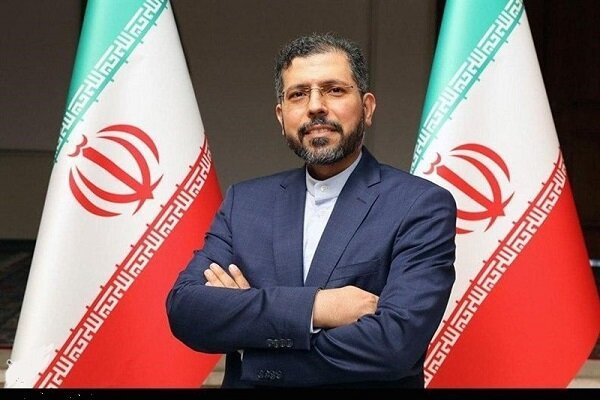The intensification of anti-Iran measures, according to Iran’s Foreign Ministry spokesman, will fail to create leverage and also runs counter to the expected seriousness and goodwill at a time when Iran and the remaining signatories to the 2015 nuclear deal are in the midst of a new round of talks on the removal of American sanctions.
Late Tuesday, Saeed Khatibzadeh made the comments in a tweet, just after the US Treasury and State Department announced penalties against a dozen Iranian government people and organisations over allegations of human rights violations.
“Even amid Vienna talks, US cannot stop imposing sanctions against Iran,” Khatibzadeh wrote in his tweet, referring to the seventh round of high-level talks between Iran and the other parties to the nuclear agreement in the Austrian capital of Vienna.
“Washington fails to understand that ‘maximum failure’ & a diplomatic breakthrough are mutually exclusive. Doubling down on sanctions won’t create leverage — and is anything but seriousness & goodwill,” he added.
The US government stated without giving evidence that eight Iranian individuals and four organisations were complicit in the suppression of demonstrators and political activists, therefore new sanctions were imposed on Tuesday.
In May 2018, former US President Donald Trump unilaterally pulled out of the 2015 nuclear deal, formally known as the Joint Comprehensive Plan of Action (JCPOA), and re-imposed anti-Iran sanctions that the accord had eased. As part of his “maximum pressure” campaign, he imposed further sanctions on Iran based on non-nuclear pretexts.
After a year of strategic patience, Iran opted to relax some of the limits on its nuclear energy programme, citing its legal rights under the JCPOA, which allows a party to suspend contractual obligations if the other party fails to meet its obligations.
The government of US President Joe Biden has expressed willingness to compensate for Trump’s error and rejoin the agreement, but it has kept the sanctions as a bargaining chip.
After a five-month pause, envoys from Iran and the P4+1 group of countries — the United Kingdom, France, Russia, China, and Germany plus Germany — resumed discussions in Vienna on November 29 to resurrect the JCPOA.
The Iranian team offered two detailed draught papers at the discussions, the first under President Ebrahim Raeisi: one on the easing of US sanctions and the other on Iran’s return to its nuclear commitments under the JCPOA.
The ambassadors returned to their capitals for more deliberations after the five-day rigorous negotiations finished on December 3.
Iran’s main negotiator in the Vienna talks, Ali Bagheri-Kani, stated on Tuesday that a fresh round of negotiations between Iran and the five other parties to the 2015 nuclear deal will begin on December 9.
Bagheri-Kani, who is also Iran’s deputy foreign minister for political affairs, highlighted that Tehran’s two suggested draughts in the seventh round of negotiations have the potential to significantly progress the talks.
The two proposed documents, according to a senior Iranian diplomat, were nothing new and were in line with the texts that had previously been agreed upon by both sides during the previous six rounds of discussions, but with some changes and additions to compensate for the flaws.
